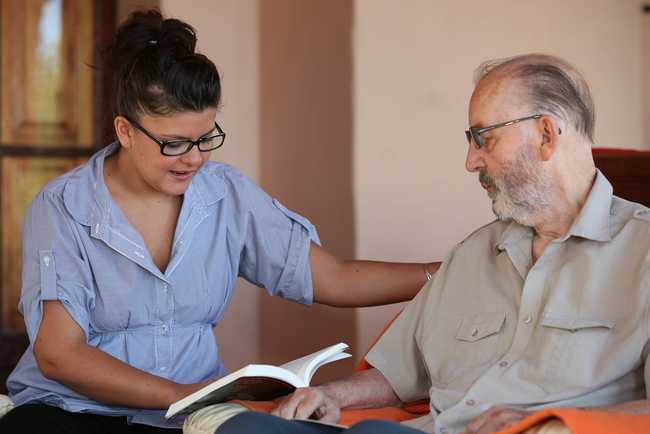
Helping the elderly is a challenging but rewarding job. It requires a great deal of compassion, care, and understanding.
If you’re thinking about becoming an elderly companion, you should know a few crucial things before you begin this journey.
Read on to learn more about elderly companion services, and how to take your career a step further with more advanced positions in elderly caregiving.
What is Companion Care for the Elderly?
Elderly companion care is about more than just spending time with patients and getting to know them. Companions for seniors at home are expected to provide clients with many services beyond the casual visit.
A professional companion for seniors will assist with daily tasks like hygienic care (such as brushing teeth), bathing, and feeding. They may be responsible for providing meals or cooking meals with the client in their home.
Help with ambulation is a crucial role of a professional elderly companion. This process involves assisting the senior with learning how to walk on their own. Through ambulation, the client can begin to get more exercise, improve their circulation, and continue functioning at home when no one is there.
You may also be responsible for help with transferring and lifting your client. This process involves moving the person from one flat position (such as lying in a bed) to another. Transferring may require the assistance of several other companions at once, depending on the person’s condition.
Home companion care also involves helping with transportation and running errands. Whether you need to pick up a prescription or purchase items from the grocery store, you’re responsible for helping your client with their daily needs.
Of course, you’ll also serve as a friend and a form of support for the elderly, offering clients a listening ear and a new friendship. Catering to their basic needs is essential, but so is helping to eliminate feelings of loneliness and providing your client with a sense of hope.
Being an Elderly Companion: What are the Requirements?
There is no college degree required to become an elderly companion, but you will need a high school diploma or equivalent. Most companies require you to participate in a training program, while others may offer on-the-job training.
In addition to job training, CPR certification is recommended. An easy CPR training course will help you become certified to handle an emergency and possibly save someone’s life.
You may look for training through organizations like the Red Cross that offer helpful tips and information about the specific caregiving requirements that the elderly need. These training programs should cover the basics of home companion care as well as the more nuanced needs of seniors.
If you have experience with basic household management such as cleaning or working in the hospitality industry, this can help you excel in your career as a companion. Basic household chores are often part of the job description, whether it’s cleaning bathrooms or cooking meals.
A valid driver’s license and a clean driving record are also required to become an elderly companion. You’ll need to be able to provide transportation for your client and run errands for them, so having a license and reliable form of transportation is a must.
Those with prior experience working with the elderly are prime candidates for this type of job. Working as an elderly companion comes with its challenges, so it’s important to understand how to provide care in a calm, compassionate manner, even when the responsibilities get stressful. Whether you’ve had professional or personal experience working with the elderly, having done so before can be advantageous.
Characteristics of a Home Companion Care Professional
Working closely with the elderly can be a demanding career, so it’s crucial to consider if this job is right for you. You want to make sure that your clients feel comfortable with you while you help them with personal activities such as bathing or getting dressed. You must be dependable and trustworthy so that your clients feel safe in your care.
Having good interpersonal skills is also a quality of an excellent elderly companion. If your client is in pain or needs help, you must know how to respond to their fear and emotions in a calming and positive way.
Besides the emotional aspects of this job, you should also be able to perform a variety of physical tasks like lifting and assisting clients with ambulation. There are no federal training requirements for this career, but your state health board may have specific certifications that you must obtain before you can start working.
If you consider yourself a level-headed, compassionate person who enjoys caring for others, home companion care could be the right job for you. Find out what the guidelines and requirements are beforehand so you can start your journey toward the path of a fulfilling career.
The Next Step: Elderly Caregiving
Becoming an elderly companion is demanding yet rewarding work. There are several certifications and qualifications to meet before you are entrusted with ensuring another person’s safety, physical and emotional health, and overall quality of life.
However, these requirements only scratch the surface of a career in elder care. Beyond the initial basic requirements, there are myriad opportunities in the elderly caregiving field where you can hone your skills and become an even more advanced caregiver, like as a Caregiver or a Care Manager at Stowell Associates. Our trained in-home Caregivers and high-level CNAs go above and beyond traditional caregiver requirements, dedicating additional time and education to serving each client’s unique needs.
You can learn more about becoming an in-home Caregiver by checking out our careers page!









